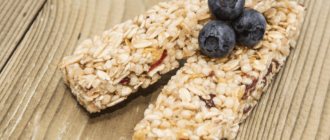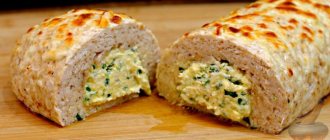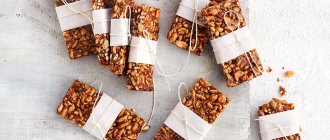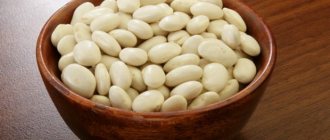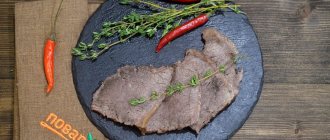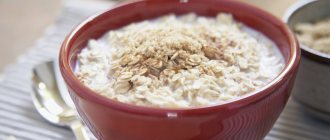There is a stereotype that vegetarianism, in particular veganism, makes people physically weak. Supporters of this opinion believe that only those who lead a sedentary lifestyle can give up animal products. However, the experience of vegetarian athletes indicates the opposite. They turned out to be meatless, but at the same time they are in excellent shape and successful in their areas. This is a list of the most famous athletes who have switched to a vegetarian diet.
Vegetarianism cannot be called an unambiguously healthy or harmful food system. The results of scientific research on this topic are quite contradictory, as are the reviews of people who have become vegetarians. It is impossible to achieve complete objectivity, since a person’s health and well-being are influenced by many factors, food diet is only one of them.
Athletes who have abandoned animal foods rise to high pedestals and compete with those who adhere to a traditional diet. They have physical strength and endurance, speed and agility. This does not prove that vegetarianism is the best system, but it does confirm that its adherents can achieve athletic success.
For accuracy, the list includes only those athletes who meet these criteria:
- outstanding results in at least one sport, the presence of awards of the highest degree;
- availability of truthful publicly available information confirming a vegetarian diet;
- the abandonment of animal food occurred at the time of the formation of a career, and not after its completion.
Athletics and running
Edwin Moses
Track and field athlete, Olympic medalist in the 400-meter steeplechase. The peak of his career came from 1977-1987, he competed 122 times and won each time. Moses adhered to vegetarianism as a food system and ideology, and promoted humanism in relation to all living things. The University of Massachusetts awarded him a doctorate for using sports to improve society.
Emil Voigt
In 1908, Voight became the last Olympic medalist in the 5-mile race. After this, competitions for this discipline were not held, his record will forever remain unbroken. The athlete came to vegetarianism for ideological reasons. He was a member of the Vegetarian Cycling Club, whose supporters were vegetarians and cycling enthusiasts.
Fiona Oakes
Marathon runner, who holds three world records. She adhered to veganism from the age of 6, at 17 she lost her kneecap, but did not stop running. He is one of the philanthropists of the CAPS association, whose goal is to ban the use of animals for human entertainment. Laws regarding circuses and zoos passed around the world in recent years show that CAPS' work has received public recognition. Fiona Oakes also runs animal shelters.
Brendan Brazile
A vegan athlete, author of books about this nutritional system and creator of the Vega brand, specializing in the production of products from plant materials. He brought many followers to veganism after his books became bestsellers. Brazile completely abandoned animal foods in 1999, after which he won the Canadian 50 km ultramarathons in 2003 and 2006.
Hillary Biscay
She became a vegan in 2009 after realizing how bad animal agriculture is for the environment. Caring for the environment has had personal benefits for her. Biscay claims that eating plant-based foods makes her lighter but also very strong. She competed 60 times in Ironman races, won Ultraman World in 2010, and in 2010 achieved the fastest debut ever in Ultraman.
Carl Lewis
The famous track and field athlete switched to vegetarianism in 1990, after which he became an Olympic medalist three times. In 1999, he was awarded the title “Athlete of the Century”, the decision was made by the IOC. Lewis was successful before, but the results since 1991, in his opinion, were achieved only thanks to veganism.
Nutrition principle
A vegan athlete, Medrano's diet focuses on home-cooked meals. Because only in this case can you be sure of what exactly you are eating.
The diet is based on peanut butter, almond milk, pasta, whole grain bread and oatmeal, nuts, coconut and olive oil, beans, lentils, mushrooms, quinoa, spinach, fruits, vegetables and brown rice.
Vegan athlete Medrano advises those who would like to switch to such a diet to do so gradually, recognizing that at some point there is a chance of relapse. Therefore, you need to carefully study all the available information, look for the food that you will eat, realize that you can cook it yourself, and study vegetarian recipes. The main thing is to remember that there is a guaranteed reward ahead of you in the form of improved health, as well as the awareness that by this action you are helping the planet and opposing the killing of animals and cruelty.
Martial arts
Georg Hackenschmidt
This wrestler was nicknamed the “Russian Lion”, despite the fact that he was a vegetarian. He became one of the first professionals in modern martial arts, the first to receive the title of world champion in freestyle wrestling. In addition to wrestling, the Russian Lion was successfully involved in weightlifting and set several strength records.
Eder Jofre
The vegetarian boxer became the world leader in the bantamweight group and held this status from 1961 to 1964, in featherweight in 1973. Included in the International Boxing Hall of Fame. I didn’t eat anything meat throughout my professional development; I gave it up for moral reasons after visiting a slaughterhouse.
Lenroy Thompson
A supporter of veganism and at the same time a boxer in the heavyweight group. Led Team America in 2016. He gave up all animal food in 2012, after which he became the US champion twice. Promotes the ideas of veganism in his hometown. Thompson regularly fights in a pink uniform, thereby attracting the public to the problem of breast cancer.
Mac Danzig
Obviously, this mixed martial arts fighter did not find like-minded people on the topic of nutrition in his circles, since, according to him, for a long time he was the only vegan in martial arts. Danzig is an animal rights activist who switched to a completely plant-based diet in 2006. The fighter’s debut was his victory at The Ultimate Fighter 6 in 2007.
Claire Foreman
She practices Muay Thai and won the 2015 Australian Championship. Forman has not eaten meat since 2008, and since 2015 she has chosen a purely plant-based diet. The decision to change food was made based on reflections on the state of the environment and the suffering of animals in large factories. She now admits that it has brought positive changes in her well-being and professional success.
Walter Kowalski
He was known throughout the world as the Kowalski Killer. He is not only a multiple wrestling champion, but also the creator of his own school, from which many famous American fighters have emerged. He switched to vegetarianism in the 60s of the last century and actively promoted these ideas in society. He took part in television shows and often performed in vegetarian restaurants in Boston.
Fiona Oakes
Another famous vegan athlete is Fiona Oakes. She is a cyclist and marathon runner, and is also a renowned animal rights activist, firefighter and community activist, and the recipient of a number of honorary awards. For example, the international prize for vegan achievements in 2004.
Throughout her career, Oakes set several marathon course records in the UK and Finland, and won the World Marathon in Moscow in 2004. Ranked among the top ten female marathon runners in Great Britain. One of her most outstanding achievements was finishing the Great Northern Run in 2010, and she also became the first woman to run the most difficult marathon on the planet - athletes are required to cover 245 kilometers across the Sahara in just 6 days.
Another interesting fact. Fiona is a firefighter; in England, representatives of this profession are required to work in boots made of genuine leather, which was contrary to her principles. So she worked in rubber boots for two years, risking her health, until she got firefighters' boots made from ethical materials.
She hasn't eaten meat since she was six years old.
Team gaming disciplines
Forest Green Rovers
Became the first club in the history of football in which all players are vegans. Officially, the title was awarded to it only in 2015, although its founding took place in 1889. The association was formed in one of the counties of Britain, it plays in the second national league to this day.
Neil Robinson
He was the first football player who did not eat meat. A vegetarian since the age of 13, a decade later he stopped eating all animal products. The main achievement was recognition as the best in Grimsby Town in 1985 and 1986; this club was the second most successful in Britain at that time.
Robbie Earl
Also a footballer, he played in the Jamaican national team and for major English clubs. He took part in 33 games for Jamaica, including the 1988 World Championship, when all the goals scored belonged to him. Information that Robbie Earle is a vegetarian has been confirmed by the Vegetarian Society of Britain.
Ricky Williams
Built an amazing career as an American football player. He constantly adhered to vegetarianism, consuming only one animal product - Greek yogurt. Played 12 seasons in the NFL and another in the CFL. He is a Heisman Trophy winner and a two-time All-American.
PS Useful links
- Great Vegan Athletes - website directory of vegan athletes (in English).
- No Meat Athlete is a Russian-language site about vegan athletes.
- List of vegans in English. Wikipedia.
- Vegetarian athletes are an open group on the VKontakte social network.
See also ecobeing:
- Article: “How to switch to vegetarianism: the path to natural harmony.”
- Article: “Vegetarianism as a Life Choice!”
- News: "UK's Forest Green Rovers are the world's first vegan football club" (November 3, 2015)
Winter disciplines
Bode Miller
He is rightfully considered the best alpine skier in the United States and became world champion several times. He holds the record - the title of oldest Olympic winner in alpine skiing. He did not eat meat products in his youth, and this did not prevent him from achieving such success.
Megan Duhamel
Figure skater, became famous in pair disciplines. She switched to veganism in 2008, after which she twice won world championships in 2015 and 2016. Megan Duhamel has repeatedly commented on her transition to vegan nutrition. According to her, this diet suited her very well, thanks to it she became more concentrated in training and recovered faster after it.
Hannah Teter
The snowboarder won the World Cup six times and received Olympic gold in 2006. In total, she earned more than $100,000, and donated all these funds to charity. She gave up meat after watching the film “Earthlings,” and claims that this had a positive effect on her development in sports. Now he actively supports the Special Olympics, in which people with mental disabilities participate.
Who can be found on this list?
It is not possible to estimate the total number of athletes following a vegetarian/vegan diet. This is also facilitated by the fact that the information disseminated in the media is often insufficient or categorically incorrect: for example, on the Russian Internet there are headlines of articles about the vegetarianism of a Russian athlete, who in the interview quoted there says that she gave up only meat, but regularly eats chicken.
Therefore, the criteria for selecting people for this list were as follows:
- A person has achieved outstanding results in his sport(s): top awards, world records, worldwide fame.
- There is clear evidence on the Internet about the diet that a person follows. To clarify them, significant sources of information provided in search engines were carefully checked.
- The person followed a vegetarian or vegan diet at the time of his achievements. Many stars became vegetarians either for a short time or after their successful careers.
At the same time, there was no task to select all the best tennis players or boxers - one or just a few representatives were selected for each sport, because this is enough to demonstrate the existing diversity among record-breaking vegans and vegetarians, as well as their outstanding capabilities and sporting achievements (taking into account the specifics physical activity).
Other disciplines
Alexey Voevoda
Our compatriot, world champion in bobsleigh 2011. They wrote and spoke especially a lot about Voevoda not after the world championship, but after the Sochi Winter Olympics 2014, then he brought the team two gold medals. I became a vegetarian back in 2010 and practiced a raw food diet for a short time. The athlete is successful not only in bobsleigh; before becoming interested in this discipline, he became the world champion in arm wrestling three times. After victories in 2014, he expressed a desire to return to wrestling.
Serena and Venus Williams
The same-age sisters became successful tennis players, their fame spread throughout the world. Her older sister, Venus, was forced to switch to vegetarianism in 2011. She was diagnosed with Sjogren's syndrome, an autoimmune disease in which many animal products increase inflammation. Serena began to eat the same way so that it would not be so difficult for her sister. From that moment on, they became champions of the 2012 Olympics in doubles matches and achieved personal success: at the same games, Serena took gold in singles, Venus took second place at the next Olympic Games.
In addition, Serena set a record; she held the title of world number one for 186 weeks, which lasted from 2013 to 2016.
Johnny Weissmuller
He was known to the world as a swimmer and actor who played Tarzan in popular cinema films of the 30-40s of the last century. He became a vegetarian for medical reasons, and after that he broke the swimming record that he had previously set. He won the highest Olympic award five times.
Patrick Baboumyan
It’s hard for many to wrap their heads around the fact that Germany’s strongest man hasn’t eaten meat since 2005, and in 2011 he became a vegan. The status was assigned in 2009, the athlete still holds it. The weightlifter, who used to be a bodybuilder, set a record for log lifting in the discipline up to 105 kg, lifting 165 kg. Patrick Baboumyan also became the face of the animal rights company PETA.
Olga Yaremenko
Our compatriot, a six-time world leader in kettlebell disciplines, holds the title of Master of Sports. According to Olga Yaremenko, being a vegetarian suits her; she noticed positive changes in her health, as well as accelerated recovery after training. All records and high victories were achieved after the transition to a new power system.
Anil Kumble
In this cricketer's home country, India, vegetarianism is very common. Now he is not only a successful player, but also the first coach of the state team. He claims that his diet not only saves animals, but also has a great effect on athletic endurance. The athlete gets everything he needs from vegetarian food, avoiding the toxins and cholesterol found in meat.
These and many other people prove that a plant-based diet is not a hindrance to sports achievements. This is despite the fact that an athlete’s diet should be more saturated and nutritious than that of a person with a non-sports lifestyle. In recent years, the number of vegetarian athletes has increased sharply, and this nutritional system has become a current trend. But it is important to understand that a plant-based diet also has contraindications; any diet will be effective only if it is individually tolerated.
What supplements to take
Protein powder
If you can't get your protein intake from food, try protein powder. Vegetarians can freely consume wheyEffect of protein/essential amino acids and resistance training on skeletal muscle hypertrophy: A case for whey protein., Whey protein stimulates postprandial muscle protein accretion more effectively than do casein and casein hydrolysate in older men., The effect of whey isolate and resistance training on strength, body composition, and plasma glutamine., Ingestion of casein and whey proteins result in muscle anabolism after resistance exercise., Greater stimulation of myofibrillar protein synthesis with ingestion of whey protein isolate v. micellar casein at rest and after resistance exercise in elderly men. protein and casein Slow and fast dietary proteins differently modulate postprandial protein accretion - both types are made from milk and contain enough essential amino acids and leucine. Casein takes longer to digest, so it is recommended that Slow and fast dietary proteins differently modulate postprandial protein accretion be consumed before bed to ensure uninterrupted delivery of amino acids to the body throughout the night.
Vegans can also try several types of protein:
- Soy protein. It is more effectiveIngestion of whey hydrolysate, casein, or soy protein isolate: effects on mixed muscle protein synthesis at rest and following resistance exercise in young men. casein, but worseThe role of milk- and soy-based protein in supporting muscle protein synthesis and muscle protein accretion in young and elderly persons. whey protein. There is evidence that in addition to the positive effect on muscle mass, it also reduces Evidence Supports the Use of Soy Protein to Promote Cardiometabolic Health and Muscle Development. cholesterol.
- Pea protein. Absorbs slower than whey, but faster than casein. There is evidence Pea proteins oral supplementation promotes muscle thickness gains during resistance training: a double-blind, randomized, Placebo-controlled clinical trial vs. Whey protein. that it is just as effective for building muscle as whey.
- Brown rice protein. Contains little lysine, but there is evidence that it is no less effective than whey.
One serving of protein is 20 g of powder. Dilute it in 250–300 ml of water, milk or juice and drink. Before going to bed, you can increase the portion - drink 40 g of dissolved protein. The number of shakes per day depends on the level of protein deficiency. Calculate how much you are missing from your diet and make up for it with powder.
Creatine
Creatine increases Effects of oral creatine supplementation on muscular strength and body composition., Performance and muscle fiber adaptations to creatine supplementation and heavy resistance training., , Effects of oral creatine and resistance training on myosin heavy chain expression., Long‑term creatine intake is beneficial to muscle performance during resistance training., Effects of in‑season (5 weeks) creatine and pyruvate supplementation on anaerobic performance and body composition in American football players. performance, promotes muscle growth and maximum strength, helps the body adapt to training and increase the volume of work.
Take International Society of Sports Nutrition position stand: creatine supplementation and exercise 0.3 g of creatine per 1 kg of body weight per day for three days, and then 3–5 g per day to maintain its level.
You can use another method: take 2-3 g of the supplement per day for a month. In this case, the creatine level will rise gradually.
Beta-alanine
This is an amino acid due to which you can Beta‑alanine and the hormonal response to exercise. Work longer with heavy weights without fatigue and burning in your muscles. The main source of beta-alanine is meat and poultry, so vegetarians and vegans should try supplements.
Take Vegan diets: practical advice for athletes and exercisers 4–6 g of beta-alanine per day in courses of 2–4 weeks. You can drink it alone or together with creatine. There is evidence Effect of creatine and beta‑alanine supplementation on performance and endocrine responses in strength/power athletes that taking these supplements together helps increase muscle mass and lose fat more effectively than creatine alone.
Zinc
This trace elementZinc status and serum testosterone levels of healthy adults is related to testosterone levels and is found primarily in animal sources. Vegan diets: practical advice for athletes and exercisers advise women to take 12 mg of zinc per day, men - 16.5 mg.
Iron
Iron Status of Vegetarian Adults: A Review of Literature is often iron deficient in vegetarians, especially in women who lose this trace element during their periods. In addition, plant sources provide non-heme iron (not bound to hemoglobin), which is less readily absorbed by the body.
At the same time, this trace element is necessary for normal muscle function, and its deficiency can negatively affect performance.
To avoid weakness and decline, men are recommended to consume 14 mg of iron per day, and women - 33 mg of iron per day.
Vitamin D
A lack of vitamin D negatively affects muscle strength and oxygen consumption. In addition, a deficiency of this vitamin prevents calcium from being absorbed normally, which can lead to fatigue injuries.
For vegetarians and vegans, supplements with ergocalciferol (D2), a form of the vitamin derived from lichen, are suitable. Vegan diets: practical advice for athletes and exercisers. It is less absorbed than the D3 form from animal sources, but it is better than nothing. Take D2 at the dose indicated on the package.
Read also:
- Vegetarianism in winter - how should vegetarians eat in the cold?
- What foods help against cancer?
- Who are vegans and how do they differ from vegetarians: the benefits and harms of veganism - to be or not to be?
- Mono fruitarianism - a new direction of healthy eating
- Vegetarian nutrition - balanced menu examples for all occasions
- Vegan baking recipes for any holiday - secrets of a vegan pastry chef
- Why vegetarianism is harmful - a diet that slowly kills: 10 arguments in favor of meat
- Exclusive interview with the CEO of the company producing vegan products “VolkoMolko” Alexandra Levkova
Germain Defoe
Germaine Defoe plays for the English football team Bournemouth FC. Its price tag is approximately $20 million, and Dafoe attributes his awkward comeback to his vegetarian diet, as he told Men's Health. “I don’t see anything difficult about stopping eating meat, eggs, dairy products, because it’s replaced by a much more important feeling for me, which I get when I score goals,” he told the Guardian.
Kendrick Yahcob Farris
Kendrick is a professional weightlifter: he was 11th at the Rio Olympics.
He decided to switch to a vegetarian diet for religious reasons after the birth of his second son.
In an interview with Men's Fitness, he said: “You can replace meat with plant sources and it can be very tasty and good for your body. We hear “protein, protein, protein” all the time! but you can eat too much of it and the excess will simply pass through your body.”
Nate Diaz
Diaz is a UFC fighter. He first became a vegetarian at age 18, inspired by his older brother, who was a welterweight champion in Strikeforce and the WEC.
“Being a vegetarian makes me a smarter fighter. My brother and I have been at the top of this game for quite some time. And we are clearly doing everything right. In addition to thinking about how to hit someone in the head, it is also important to keep in mind how you will feel tomorrow,” Nate shared in an interview with Men's Journal.
Diet for a vegetarian athlete
Switching to a new type of diet usually causes stress for the body. Therefore, this should be done gradually and carefully. Some athletes do not adhere to a strict plant-based menu. There are several types of vegetarian diets:
- Lacto-ovo vegetarianism. This diet allows you to consume eggs and milk.
- Lacto-vegetarianism . This type of food does not allow the consumption of eggs.
- Veganism . The most strict type of diet. It involves a complete abstinence from meat, milk, eggs and even bee products. This is not just nutrition, but a philosophy of life. Vegans also avoid clothing and shoes made from animal fur and leather.
Scott Jurek
The famous ultramarathoner Scott Jurek has won 16 prestigious races. His personal record is 266.7 km in 24 hours. Jurek switched to a vegetarian diet in college, believing that vegetarianism would save him from his family's hereditary diseases, such as his case of multiple sclerosis. “It was my long-term decision,” he told GQ.
Reasons why athletes switch to vegetarianism
In sports, as in other areas, people who achieve great heights are purposeful and strong-willed, who are ready to sacrifice their time, comfort and eating habits for the sake of future results. Today, a professional athlete is not just a pile of muscles and clear control of his body, but is often a well-read person who understands anatomy, nutrition and sports medicine. Most often, athletes refuse meat and other animal products for the following reasons:
- Increasing endurance and improving athletic performance . A properly selected plant-based diet can improve indicators such as: strength;
- endurance;
- speed;
- speed of muscle recovery after exercise;
- brain activity;
- mental condition.
Barney du Plessis
Barny Du Plessis is the first vegetarian bodybuilder to win the Mr.Universe title in 2014.
Du Plessis became a vegetarian in 2013, self-confessedly due to various health problems, particularly hernia and acid reflux. After adapting to a vegetarian diet, he began to feel better, returned to the platform and won in 2014.
In an interview with Metro, he said: “In those days, my training volume was half as much as usual, but the results only improved. Why? I have only one answer - vegetarianism, organic food.
The Du Plessis woman, Josie, also shares his philosophy and participated in World's Strongest Woman 2010. They say about their mission: “We represent here on the platform all vegetarians of the Earth, all animals and the nature of our planet. We want to prove that you can be strong, happy and healthy without harming poor animals.”
Lewis Hamilton
The 5-time Formula 1 world champion won his latest title recently, after a year on a vegetarian diet, which he switched to a year ago, in 2017.
In an interview with the BBC about his new eating style, Lewis said: “As a human race, how much we contribute to global warming... A large proportion of emissions come from raising cows for food. I read that this is even more than the emissions of all vehicles in the world. And I believe that I can contribute in this way.”
Myths about vegetarianism
Official medicine is of the opinion that without meat the body does not receive enough substances and elements necessary for normal life and does not work effectively enough. The main myths associated with vegetarianism are based on the fact that plant foods do not provide the organs with everything necessary for a full life. It is believed that vegan athletes lack the following substances:
- Proteins and amino acids. Animal food is actually one of the main sources of protein. The absorption of protein from eggs occurs by 100%, from meat - by approximately 95%. Plant foods in this regard do not have such indicators. In fruits and vegetables, protein digestibility is about 50-60%, in legumes - 80%. But this does not mean at all that athletes who eat only plant foods will not receive enough protein. A plant-based diet is quite nutritious and can fully cover the body’s needs. Complete protein can be obtained from beans, peas, lentils, grains, seeds, nuts and soy products.
- Vitamin B12. This vitamin is extremely important for the body. It takes part in hematopoiesis, supports the nervous and immune systems, and helps transport oxygen to the cells of the body. Lack of vitamin leads to various nervous diseases, anemia, chronic fatigue, and disorders in the gastrointestinal tract. The common myth that vitamin B12 is found only in meat and fish products is not true. It is also found in milk, soy, seaweed, etc., but in small quantities. Therefore, vegetarian athletes should additionally take dietary supplements containing this vitamin.
- Zinc and iron. These elements are also found mainly in foods of animal origin. In addition, during intense physical activity, zinc is removed from the body. To replenish its losses, vegan and raw food athletes should take appropriate dietary supplements or products containing zinc and iron. Such products include wheat bran, sesame seeds, pine nuts, legumes, some fruits and vegetables.


